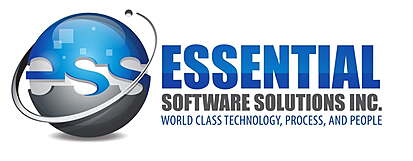While cloud transformation offers numerous benefits, it also presents the following challenges organizations must navigate to succeed:
How can we manage the cultural shift and drive adoption of Cloud ERP within our organization?
Cloud ERP transformation involves both a technological shift and a substantial change in the organizational culture. Employees might resist adopting new processes and automation tools, causing issues during the transition. Organizations must nurture a culture that welcomes change and promotes collaboration to avoid this adoption challenge. Keeping employees informed about the transition phases and educating them on the changes can foster a more positive attitude toward cloud adoption.
How can we address new technology compliance and challenges when upgrading to a Cloud ERP deployment?
Many legacy systems were built on complex architectures that can complicate integration with cloud environments. Organizations can usually overcome this by using automated migration tools. Refactoring applications and adopting hybrid cloud architectures can also help gradually transition to the cloud.
How can we ensure robust security and meet compliance requirements in a Cloud ERP environment?
Transitioning to the cloud often introduces new security challenges and compliance requirements. Ensuring data security and meeting regulatory standards can be complex for businesses, especially when handling sensitive information. To counter this challenge, organizations must enforce security strategies to safeguard their data in the cloud.
How can we vendor lock-in while selecting and implementing a Cloud ERP solution?
Sometimes cloud transformation can lead to heavy reliance on a single cloud provider. This can result in vendor lock-in and restrict an organization's ability to switch providers or adopt a multi-cloud approach later. Organizations can follow several best practices to avoid vendor lock-in, such as prioritizing a multi-cloud strategy, designing applications to be portable across different providers and carefully evaluating each vendor's services based on their specific needs.
How can we manage costs associated with transitioning to a Cloud ERP deployment in our manufacturing systems?
While cloud transformation can result in cost savings, managing cloud expenses can also be confusing. Without a well-defined financial strategy in place, organizations can face unexpected costs such as data transfer, storage and other additional services.
How can we overcome the skills shortage by developing the necessary expertise to maximize the benefits of Cloud ERP in our manufacturing processes?
How can we overcome the skills shortage by developing the necessary expertise to maximize the benefits of Cloud ERP in our manufacturing processes?
As organizations transition to the cloud, they often face a shortage of skills and talent because cloud technologies require expertise in niche areas such as cloud architecture, security, data management and DevOps practices. To address this challenge, organizations should invest in training their employees as well as recruiting new talent. They can also partner with specialized consultants for employee training.
Article Author

Andy Pratico
A respected consultant and ERP evaluation coach, Andy dedicates his career to educating clients on how to recognize and avoid common pitfalls associated with ERP systems. His expertise and commitment to transparency have earned him accolades in the industry. Whether you're exploring ERP options or seeking guidance on optimizing your existing system, Andy is ready to help you achieve the benefits that many companies only hope for.











